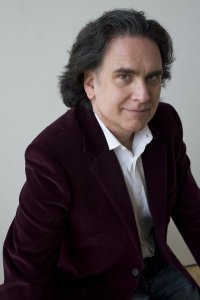A Quote by Greg Graffin
There are so many ways to characterize evolutionary success. If one criterion is the number of millions of years that the species persists, we're still just infants. We're way too young of a species to tell if we were a creative fluke or if we have any staying power.
Related Quotes
A species has to become pretty intellectually advanced in order to grasp the concept of death in the abstract, and to dream up the idea of immortality. Long before that (in evolutionary terms) all species with brains have the survival instinct in some form. So, I am just saying that there are many existent proofs of species that have one, but not the other.
There are millions of different species of animals and plants on earth--possibly as many as forty million. But somewhere between five and fifty BILLION species have existed at one time or another. Thus, only about one in a thousand species is still alive--a truly lousy survival record: 99.9 percent failure!
I am a member of a fragile species, still new to the earth, the youngest creatures of any scale, here only a few moments as evolutionary time is measured, a juvenile species, a child of a species. We are only tentatively set in place, error prone, at risk of fumbling, in real danger at the moment of leaving behind only a thin layer of of our fossils, radioactive at that.
It must be stressed that there is nothing insulting about looking at people as animals. We are animals, after all. Homo sapiens is a species of primate, a biological phenomenon dominated by biological rules, like any other species. Human nature is no more than one particular kind of animal nature. Agreed, the human species is an extraordinary animal; but all other species are also extraordinary animals, each in their own way, and the scientific man-watcher can bring many fresh insights to the study of human affairs if he can retain this basic attitude of evolutionary humility.
When I am at a dinner table, I love to ask everybody, 'How long do you think our species might last?' I've read that the average age of a species, of any species, is about two million years. Is it possible we can have an average life span as a species? And do you picture us two million years more or a million and a half years, or 5,000?
There are about 250,000 different species of fossil plants and animals known . . In spite of this large quantity of information, it is but a tiny fraction of the diversity that [according to the theory] actually lived in the past. There are well over a million species living today and . . [it is] possible to predict how many species ought to be in our fossil record. That number is at least 100 times the number we have found.
Power over seems to be driving our very young species into a ditch because it's from an old competitive, "there may not be enough" kind of framework of scarcity. Power with is thinking abundantly as opposed to fearfully. Power with is hopefully where we're going - and where we need to go as a species in order to survive.
Each of these [bacterial] species are masterpieces of evolution. Each has persisted for thousands to millions of years. Each is exquisitely adapted to the environment in which it lives, interlocked with other species to form ecosystems upon which our own lives depend in ways we have not begun even to imagine.
We [people] have the power to destroy ourselves as well as the environment. As a species we love what I'd call brinks-person-ship, going right to the edge of disaster and somehow managing to pull back and recover. But my bet is still on the creative and playful and positive in the species. I think we will manage to survive and gradually turn things around.
Researchers keep identifying new species, but they have no idea about the life cycle of a given species or its other hosts. They cut open an animal and find a new species. Where did it come from? What effect does it have on its host? What is its next host? They don't know and they don't have time to find out, because there are too many other species waiting to be discovered and described.
Now when you cut a forest, an ancient forest in particular, you are not just removing a lot of big trees and a few birds fluttering around in the canopy. You are drastically imperiling a vast array of species within a few square miles of you. The number of these species may go to tens of thousands. Many of them are still unknown to science, and science has not yet discovered the key role undoubtedly played in the maintenance of that ecosystem, as in the case of fungi, microorganisms, and many of the insects.
We are here because over billions of years, countless variables fell into place, any of which could have taken another path. We are essentially a beautiful fluke, as are the millions of other species with which we share this planet. Our cells are composed of atoms and dust particles from distant galaxies, and from the billions of living organisms that inhabited this planet before us.
As a species, taking all in all, we are still too young, too juvenile, to be trusted. We have spread across the face of the earth in just a few thousand years, no time at all as evolution clocks time, covering all livable parts of the planet, endangering other forms of life, and now threatening ourselves.

































